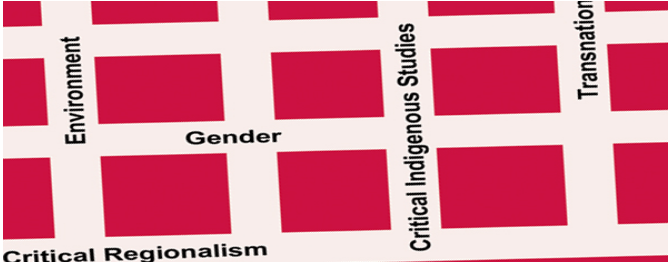
American Studies ETDs
Publication Date
9-12-2014
Abstract
This Master's Thesis explores the Jewish Holocaust (1939-1945) from within a Transnational American Studies framework by emphasizing the importance of learning about multiple genocides within a global or transnational context. An examination into the link between postcolonialism and the Holocaust contributes to broadening global dialogues on Holocaust remembrance and genocide prevention. Through the interdisciplinary vantage points of history, memory, and literature, this thesis invokes a transnational methodology to engage in an academic conversation about the United States government's lack of involvement in adequately addressing the Holocaust. This thesis highlights Jewish Holocaust Literature as a means to understand the unique perspectives of people who experienced the Holocaust. Visual representations of trauma within Holocaust Literature can provide access points for readers to obtain rich, layered, and nuanced insight into the extreme experiences of Holocaust survivors. Through descriptive, metaphorical language, Holocaust survivor stories come alive in multiple dimensions. Issues of representation and authenticity are central to critically examining Holocaust literary narratives thus, it is necessary to recognize that because authors utilize narrative conventions, express a sense of self-reflexivity, and use memory and imagination to represent their experiences, each Holocaust narrative is mediated. While Jewish male-authored Holocaust narratives demonstrate literary sophistication and nuanced descriptions of trauma, this thesis argues that scholars must more overtly study Jewish women and children's narratives in order to learn about how the most vulnerable people negotiate trauma. Women and children express particular vulnerabilities to persecution as well as strong senses of resiliency that must be recognized, studied, and remembered. Visual memories within representations of Jewish children's experiences of Kristallnacht in 1938 and the 1942 Velodrome d'Hiver round-ups in Paris are considered within a discussion on survival strategies and the differences between adult and child responses to trauma. This thesis examines how children of the Holocaust negotiate their Jewish identities, cope with displacement, separation from parents, and transition from childhood to adulthood. Since the number of Holocaust survivors living today is rapidly dwindling, the effort to document and analyze their stories for the purpose of Holocaust memory and education is paramount. Scholars within and outside of American Studies must engage more actively in critical global conversations surrounding the contested sites of individual and collective memory of the Holocaust, and awareness about persecution and genocide. This Master's Thesis is meant to foster a multi-dimensional understanding of the complicated aforementioned issues while encouraging collective action against racism, prejudice, and Holocaust denial, which remain ever-present in the contemporary world.
Language
English
Keywords
Transnational American Studies, Jewish Holocaust, Women's Holocaust Literature, Children's Holocaust Literature
Document Type
Thesis
Degree Name
American Studies
Level of Degree
Masters
Department Name
American Studies
First Committee Member (Chair)
Rebecca Schreiber
Second Committee Member
Gerald Vizenor
Third Committee Member
Antonio T. Tiongson Jr.
Recommended Citation
García, Tania Paloma. "Transnational Perspectives on Authenticity, Representation, and Expressions of Visual Memory in Jewish Women and Childrens Holocaust Narratives." (2014). https://digitalrepository.unm.edu/amst_etds/13
